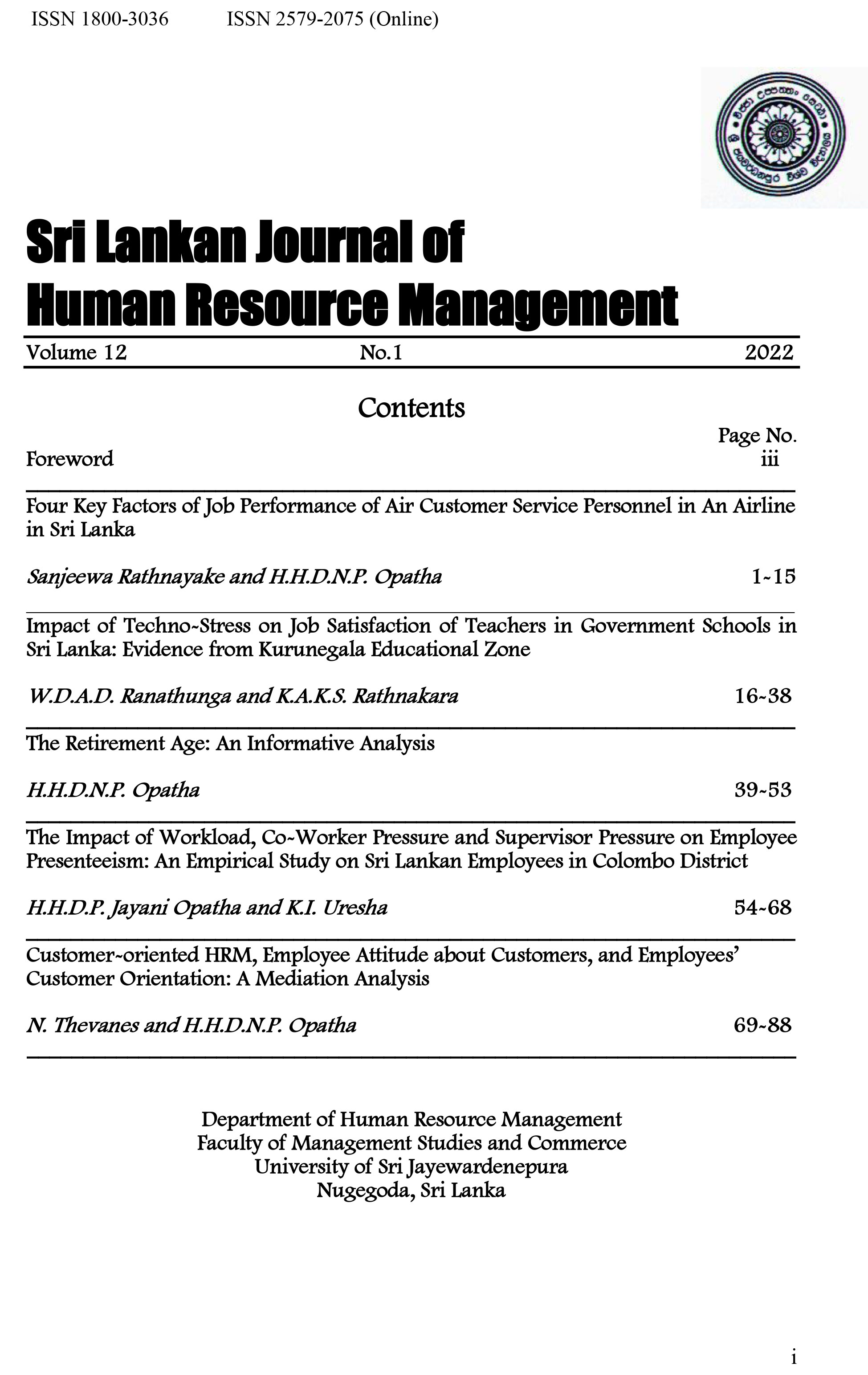Impact of Techno-Stress on Job Satisfaction of Teachers in Government Schools in Sri Lanka: Evidence from Kurunegala Educational Zone
DOI:
https://doi.org/10.31357/sljhrm.v12.6012Abstract
The way young people learn has altered due to mobile device use. Children readily use a smartphone or tablet PC to obtain information, regardless of age or location. According to studies, adopting mobile technology for learning enables young children to take charge of their education, engage in more active social interactions, access more resources, increase their research analysis abilities, and think critically and solve problems more efficiently. Conversely, teachers are stressed as these young students become more acclimated to learning with mobile technology. Techno-stress is the term for this. Five factors—techno-overload, techno-invasion, techno-complexity, techno-insecurity, and techno-uncertainty—are thought to contribute to techno-stress, which is defined as a person's incapacity to deal with new technology healthily. This study looks
at how technical stress affects teachers' job satisfaction in Sri Lanka's public schools, particularly in the Kurunegala Educational Zone. Furthermore, determining the effects of techno-creators on government school teachers' job satisfaction are the sub objectives of the study. The study's target population is Sri Lankan government school teachers, and the sample consists of 350 government school teachers in the Kurunegala Education Zone. Convenient sampling strategy was utilized, and data was collected through a questionnaire. The findings showed that factors considered under the study impacted teachers' job satisfaction. The results have some repercussions for the teachers and administrators of Sri Lankan government schools, particularly those who intend to integrate mobile technology (such as digital textbooks) into the classrooms. Teachers must comprehend how mobile technology works, how it may be used for instruction, and how useful it is for pupils if they are to minimize technological stress.
Key Words: Job Satisfaction, Government Teachers, Techno-Stress

